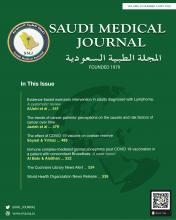Abstract
Objectives: To Evaluate the effect of messenger ribonucleic acid (mRNA) vaccines developed for the coronavirus disease-19 (COVID-19) on ovarian reserve.
Methods: This prospective cross sectional study was carried out between June and September 2021, in the Gynecology Polyclinics of a tertiary hospital, Ankara, Turkey, with 60 patients. Patients between the ages of 25-30 years old, who applied to the gynecology outpatient clinic and who were considering mRNA vaccination against severe acute respiratory syndrome coronavirus 2 were included in the study group, and those who did not plan to be vaccinated were included in the control group. Anti-müllerian hormone (AMH) was examined before vaccination (1-5 days before vaccination) and within 60-90 days after vaccination. In the unvaccinated group, AMH was examined once.
Results: The mean age of the study group was 27.30±1.66 and of the control group was 27.40±1.69 (p<0.05). Post-vaccine AMH values of the study and control groups were similar (p>0.05). There was no statistically significant difference between pre-vaccine and post-vaccine AMH values in the study group (p>0.05).
Conclusion: It is of great value that people who are planning pregnancy and who have hesitation regarding the effect of vaccines on ovarian reserve should be carefully informed that vaccines, which are one of the most important means of fighting against COVID-19 infection, have no effect on AMH levels. Prospective larger studies with a longer follow-up period are needed to confirm our results.
Footnotes
Disclosure. Authors have no conflict of interests, and the work was not supported or funded by any drug company.
- Received January 10, 2022.
- Accepted March 21, 2022.
- Copyright: © Saudi Medical Journal
This is an Open Access journal and articles published are distributed under the terms of the Creative Commons Attribution-NonCommercial License (CC BY-NC). Readers may copy, distribute, and display the work for non-commercial purposes with the proper citation of the original work.






